Various schools and universities serve Tokyo, Japan.
Publicly run kindergartens, elementary schools (years 1 through 6), and junior high schools (7 through 9) are operated by local wards or municipal offices. Public high schools in Tokyo are run by the Tokyo Metropolitan Government Board of Education and are called "Metropolitan High Schools". Tokyo also has many private schools from kindergarten through high school. [1]
Tokyo is home to many public and private universities, including the University of Tokyo, the most prestigious university in Japan.
| Tier | Universities |
|---|---|
| 1-100 | University of Tokyo (World: 29th. National: 1st) |
| 101-200 | Tokyo Institute of Technology (World: 191st, National: 5th) |
| 201-500 | Tokyo Medical and Dental University (National: 10th) |
| 501-800 | Keio University (National: 14th) |
| 801-1000 | Tokyo Medical University (21st), Waseda University (22nd) |
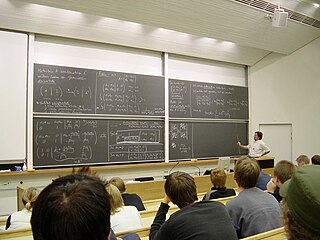
Tertiary education, also referred to as third-level, third-stage or post-secondary education, is the educational level following the completion of secondary education. The World Bank, for example, defines tertiary education as including universities as well as trade schools and colleges. Higher education is taken to include undergraduate and postgraduate education, while vocational education beyond secondary education is known as further education in the United Kingdom, or included under the category of continuing education in the United States.
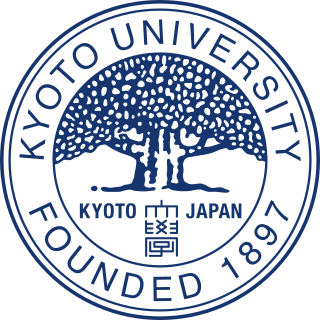
Kyoto University, or KyotoU, is a national research university located in Kyoto, Japan. Founded in 1897, it is one of the former Imperial Universities and the second oldest university in Japan.

Education in Canada is for the most part provided publicly, funded and overseen by federal, provincial, and local governments. Education is within provincial jurisdiction and the curriculum is overseen by the province. Education in Canada is generally divided into primary education, followed by secondary education and post-secondary. Education in both English and French is available in most places across Canada. Canada has a large number of universities, almost all of which are publicly funded. Established in 1663, Université Laval is the oldest post-secondary institution in Canada. The largest university is the University of Toronto with over 85,000 students. Four universities are regularly ranked among the top 100 world-wide, namely University of Toronto, University of British Columbia, McGill University, and McMaster University, with a total of 18 universities ranked in the top 500 worldwide.

Waseda University (早稲田大学), abbreviated as Waseda (早稲田) or Sōdai (早大), is a private research university in Shinjuku, Tokyo. Founded in 1882 as the Tōkyō Professional School by Ōkuma Shigenobu, the fifth Prime Minister of Japan, the school was formally renamed Waseda University in 1902.
Education in Japan is managed by the Ministry of Education, Culture, Sports, Science and Technology (MEXT) of Japan. Education is compulsory at the elementary and lower secondary levels, although more than 95% of the students receive higher secondary education as well.

Tokyo Institute of Technology is a national research university located in Greater Tokyo Area, Japan. Tokyo Tech is the largest institution for higher education in Japan dedicated to science and technology, one of first five Designated National University and selected as a Top Type university of Top Global University Project by the Japanese government.
College and university rankings order higher education institutions based on various criteria, with factors differing depending on the specific ranking system. These rankings can be conducted at the national or international level, assessing institutions within a single country, within a specific geographical region, or worldwide. Rankings are typically conducted by magazines, newspapers, websites, governments, or academics.
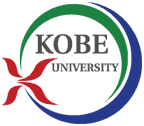
Kobe University, also known in the Kansai region as Shindai (神大), is a public research university located in Kobe, Hyōgo, Japan.

Tohoku University is a public research university in Sendai, Miyagi, Japan. It is colloquially referred to as Tohokudai or Tonpei.

Osaka University, abbreviated as OU or Handai (阪大), is a national research university in Osaka, Japan. The university traces its roots back to Edo-era institutions Tekijuku (1838) and Kaitokudo (1724), and was officially established in 1931 as the sixth of the Imperial Universities in Japan, with two faculties: science and medicine. Following the post-war educational reform, it merged with three pre-war higher schools, reorganizing as a comprehensive university with five faculties: science, medicine, letters, law and economics, and engineering. After the merger with Osaka University of Foreign Studies in 2007, Osaka University became the largest national university in Japan by undergraduate enrollment.
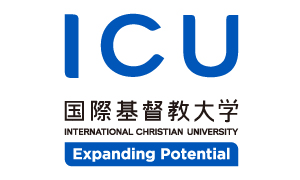
International Christian University is a non-denominational private university located in Mitaka, Tokyo, Japan, commonly known as ICU. With the efforts of Prince Takamatsu, General Douglas MacArthur, and BOJ President Hisato Ichimada, ICU was established in 1949 as the first liberal arts college in Japan. Currently the university offers 31 undergraduate majors and a graduate school. The Ministry of Education, Culture, Sports, Science and Technology selected ICU as one of the 37 schools for The Top Global University Project in 2014.
Sophia University, is a private research university in Tokyo, Japan. Founded in 1913 by the Jesuits, it was granted university status in 1928, becoming the first Catholic university in Japan.
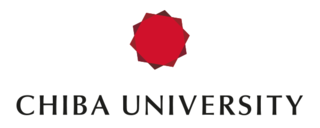
Chiba University is a national university in the city of Chiba, Japan. It offers Doctoral degrees in education as part of a coalition with Tokyo Gakugei University, Saitama University, and Yokohama National University. The university was formed in 1949 from existing educational institutions in Chiba Prefecture, and over a period of years absorbed Chiba Medical University (1923-1960), a preparatory department of the Tokyo Medical and Dental University, Chiba Normal School (1872-1951), Tokyo Polytechnic High School (1914-1951), Chiba Horticultural High School, among others. Chiba University was reincorporated in 2010 under the National University Corporation Act. Chiba University has been ranked 168th on the Asia University Rankings 2019 Top 100 by "The Times Higher Education". Its abbreviated form is Chibadai (千葉大).
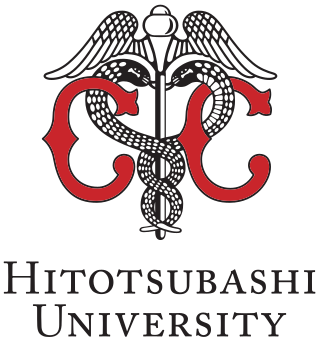
Hitotsubashi University, also known as a Tokyo University of Commerce is a national university located in Tokyo, Japan. It has campuses in Kunitachi, Kodaira, and Chiyoda.

The University of Tsukuba is a national research university located in Tsukuba, Ibaraki, Japan.

Toyo University is a private university with the main Hakusan campus in Bunkyo, Tokyo, Japan. The university operates multiple satellite campuses in the Kanto region, including. Asaka, Kawagoe, Itakura, and Akabane.

The University of Seoul is a municipal public university in Seoul, South Korea. UOS is famous in South Korea for a very large number of alumni working as national or municipal government officials in South Korea. UOS specializes in urban science and has top-tier programs in environmental engineering, taxation, transportation engineering, urban planning and design, landscape architecture, and urban administration.

The education system in Israel consists of three tiers: primary education, middle school and high school. Compulsory education takes place from kindergarten through 10th grade. The school year begins on September 1, ending for elementary school pupils on June 30, and for middle school and high school pupils on June 20. Haredi Yeshivas follow an independent schedule, starting on 1 Elul.

The University of Ulsan (Korean: 울산대학교) (UOU) is a private university in Nam-gu, Ulsan, South Korea. It was founded on February 19, 1969 as the Ulsan Institute of Technology. The University was expanded into a four-year university on March 1, 1985. The University currently has approximately 10,500 students enrolled.
Higher education in the Philippines is offered through various degree programs by colleges and universities—also known as higher education institutions (HEIs). These HEIs are administered and regulated by the Commission on Higher Education (CHED).